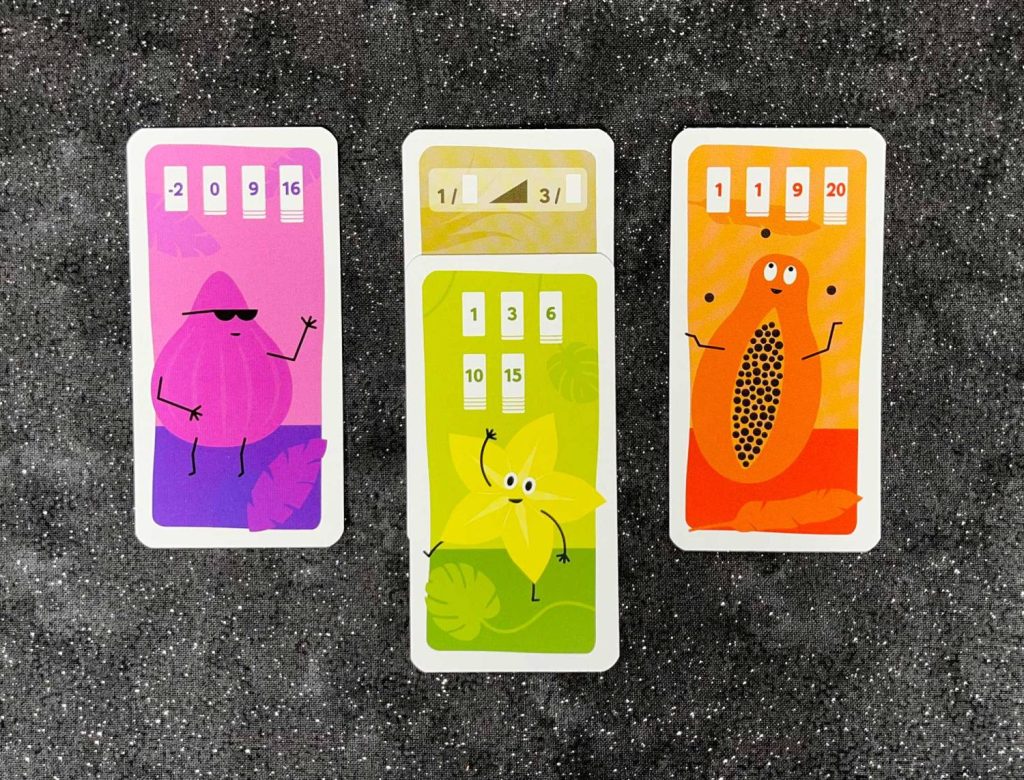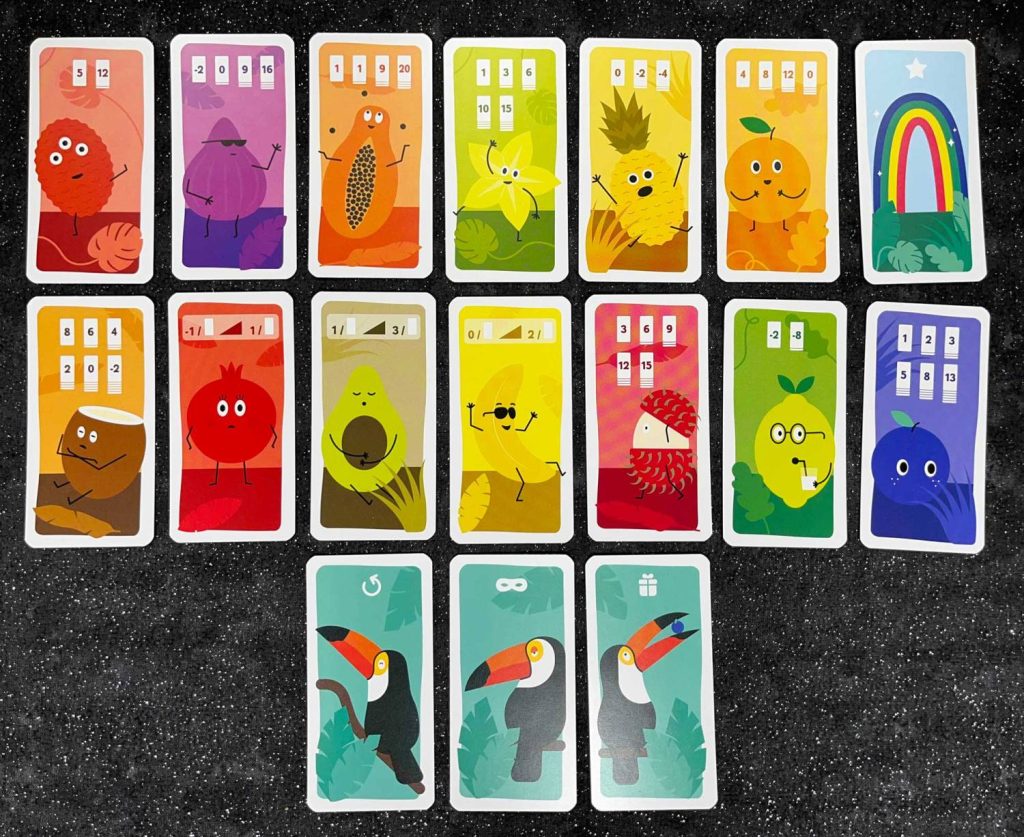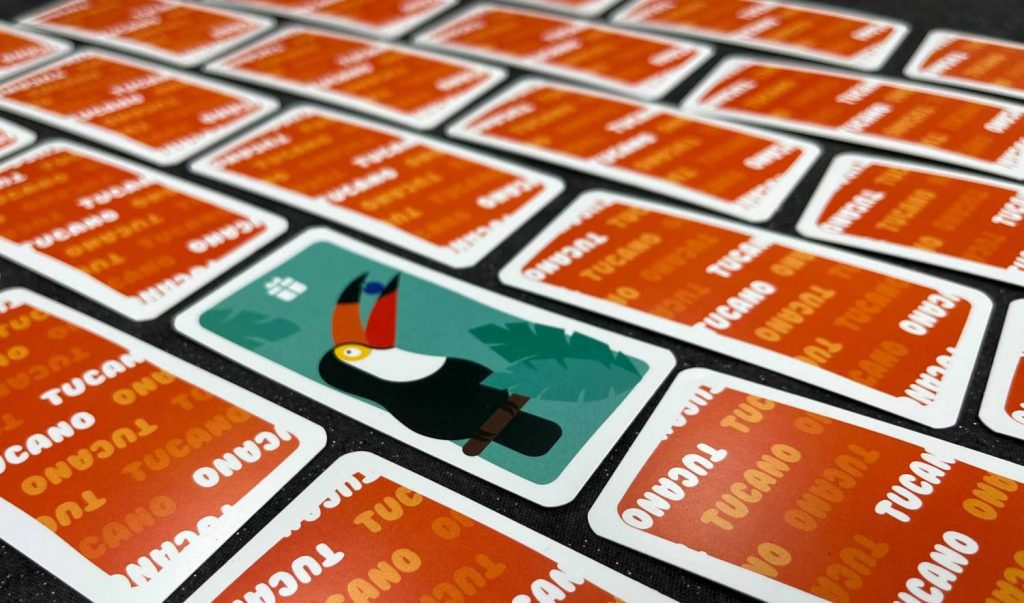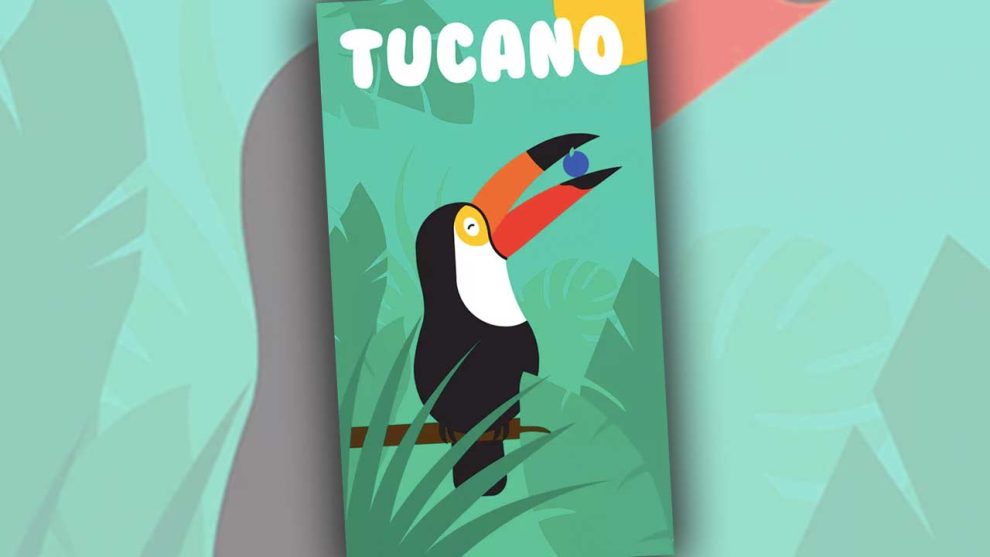In 2010, the Swiss publisher Helvetiq released the first in what would go on to be a series of small box games. Primarily card and/or dice based, these games are easily portable, with light rules, and clean European inspired graphic design and illustrations. We’ve covered several of their previous titles, including that first game Kariba, along with Bandido and, more recently, Kinoko. But today I’m taking you to the jungle in search of fruit—lots and lots of fruit. So don your wings as we soar through the trees in our review of Tucano.
Tucano Overview
Tucano is a light set collection game in which players try to collect various fruits and other “not quite fruits” in hopes of earning the most points at the end of the game. Tucano has 70 cards featuring different sets of fruits, each with a different number of cards, along with 12 “toucan” cards.

There are no starting hands of cards in Tucano, you merely lay out 3 cards face up into three columns, with a 4th card face up in the middle column. Play is simple: on your turn you select one column of cards, then arrange the cards from that column in front of you. Finally, you deal 1 new card to each of the three columns. Then repeat until only one column remains on the table.

Oh so simple, but how fiendishly clever.
Tucano Scoring
Similar to games like Sushi Go!, each card in Tucano will score in different ways. Cards like tangerines, blueberries, rambutan, lychee, and fig earn you more points the more you have of them, while limes and pineapples will earn you negative points. And yet other cards like avocado, pomegranate, and banana require you to have more of that card than other players at the table. With such an odd assortment of fruits, why would you ever pick cards which earn you negative points? And therein lies the cleverness of designer Théo Rivière.
By mixing different fruit cards, and their distinct requirements, players are forced to choose between some points, no points, and negative points by balancing the cards they already have in front of them against the columns on offer. And because there will always be that one column which no one wants to take, eventually someone will decide it’s just too good to pass up. Sure they might lose 8 points because they now have 2 limes, but they gained 12 points because they picked up both rambutans. Now expand those choices to different fruits and you’ve got some tough decisions.

Thankfully, you’re not always going to be stuck with what you’ve got—no. Tucano also includes “toucan” cards which provide 3 special abilities: steal a single card from any player, give a single card to any player, and the oft-misunderstood flip (all your cards face down). Let’s examine the first 2 abilities together.
Scoring in Tucano operates on razor-thin margins, so stealing or gifting a single card can make the difference between scoring 3 points for each of your avocados to only scoring 1, or only earning 5 points for a single rambutan instead of 12 for having both. Having the fewest pomegranates will actually earn you negative points, so it’s really important to keep a close eye on your cards and hopefully avoid theft or “unwanted giving”.
Which leads me to the 3rd toucan card—this takes Tucano from a simple set collection game to a game of “memory chicken”. With your cards flipped over, they’re safe from theft, but it puts you at a disadvantage because you can’t flip them back over until the end of the game. That means you better have a good memory: did I have 1 pineapple (worth 0 points) or 2 (worth -2 points). Was I in the lead in avocados or was it Esther? I have 3 tangerine cards right now (worth 12 points) but a 4th card will knock that down to 0 points.
Tucano Final Thoughts
Cleverness is one of my most valued traits–in games, in books, music, etc. If you’ve got cleverness, you can do almost anything. And Tucano certainly has it. The constant monitoring of your cards; hoping to find a column with only a card or two, instead of the monster stack of cards with a mix of good and bad; the balance of gift and stealing cards, etc. Even though Tucano is a light card game, you still need to pay attention to your opponents in order to avoid them clinching the 4th papaya card and a cool 20 points.
Tucano is great.It’s pocket sized, easy to play, and over in 15-20 minutes. Are you clever enough to pick up a copy for yourself?












